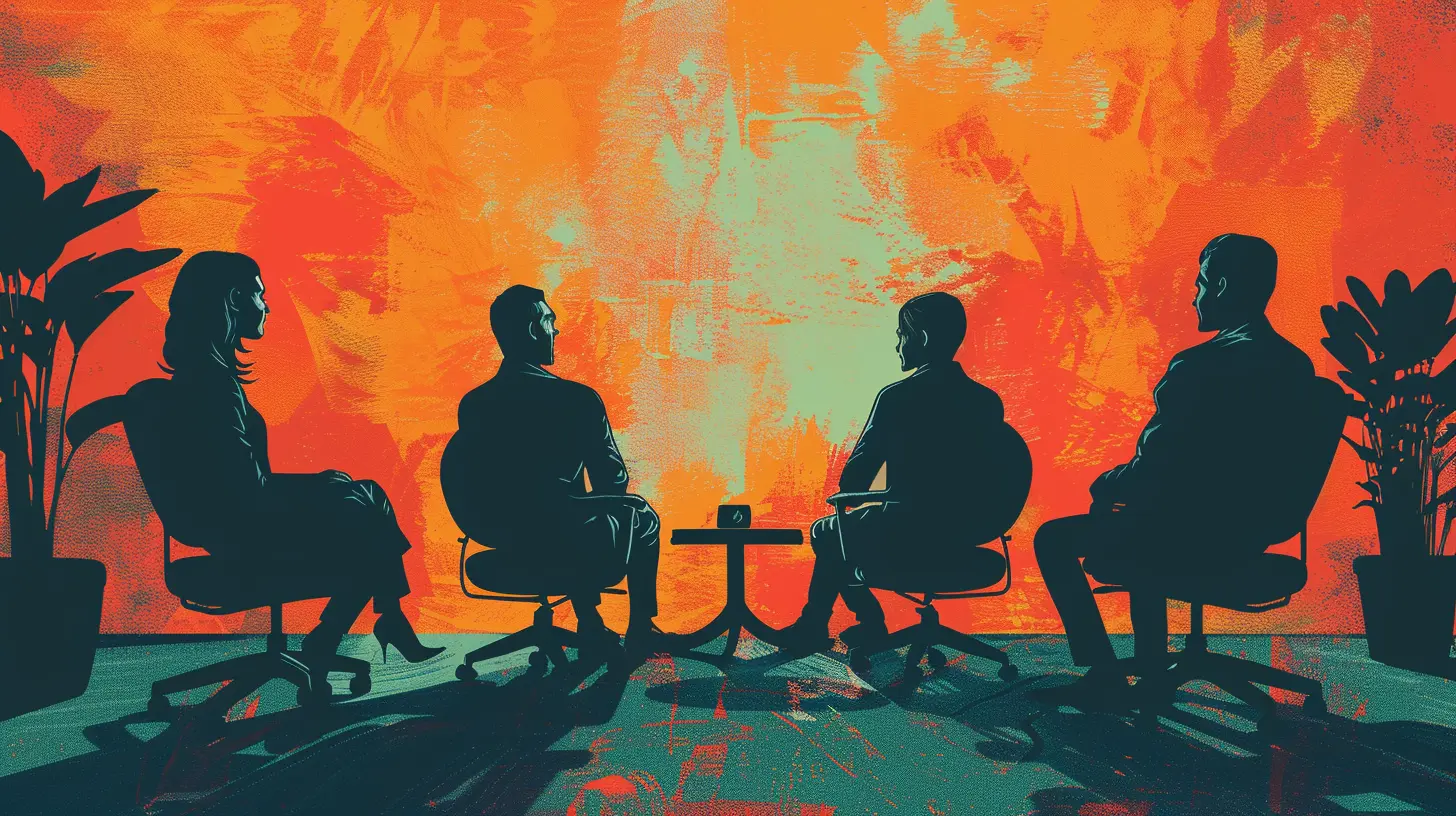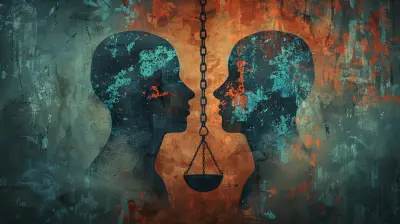The Benefits of Group Therapy for Bipolar Disorder
31 July 2025
Living with bipolar disorder can feel like riding an emotional rollercoaster—one moment, you're soaring with energy and confidence; the next, you're plummeting into a deep, dark place. Managing this condition is challenging, but group therapy can be a game-changer. Unlike one-on-one therapy, group therapy fosters connection, provides support, and helps individuals navigate the ups and downs of bipolar disorder with the strength of a community.
So, why is group therapy so effective? Let’s break it down.
What Is Group Therapy?
Before diving into the benefits, let’s clarify what group therapy is. It’s a structured form of psychotherapy where a small group of people—typically six to twelve individuals—meet regularly to discuss their feelings, challenges, and progress under the guidance of a trained therapist. Sessions are often focused on specific themes, such as managing mood swings, developing coping strategies, or improving relationships.In essence, it’s like having a built-in support system with people who truly understand what you're going through.
Why Group Therapy Works for Bipolar Disorder
1. Reduces Feelings of Isolation
Bipolar disorder can feel incredibly lonely. Not everyone understands the extreme highs and lows that come with it. Friends and family may try to support you, but unless they’ve been through it themselves, it’s tough to relate.This is where group therapy shines. It connects you with others who share your struggles. Suddenly, you realize you're not alone—others have felt what you feel, thought what you think, and battled the same demons. Knowing that can be incredibly reassuring.
2. Provides Emotional Support
Imagine this: You’ve had a rough week, emotions are all over the place, and you walk into a group therapy session. Instantly, you’re surrounded by people who "get it." No judgment, just empathy. This level of emotional support can be crucial in managing mood swings and avoiding isolation.When you're feeling down, group members lift you up. When you're manic and making impulsive decisions, they help ground you. It’s a safety net that many people with bipolar disorder desperately need.
3. Encourages Accountability
Managing bipolar disorder often requires sticking to a routine—taking medications, attending therapy, practicing self-care. But let’s be real: It’s easy to slip. In a group setting, you’re held accountable. Knowing that others are expecting you to show up, share your progress, or follow coping strategies can be a strong motivator.Got off track with your medication? Feeling tempted to skip therapy? Your group will remind you why consistency is key.
4. Teaches Practical Coping Strategies
Bipolar disorder isn’t just about mood swings; it affects sleep, relationships, work, and everyday decision-making. A good therapy group doesn’t just offer support—it teaches tools and strategies to help manage symptoms.- Cognitive Behavioral Techniques (CBT) to challenge irrational thoughts
- Mindfulness and relaxation exercises to reduce stress
- Problem-solving skills to handle conflicts in a healthier way
- Routine-building strategies to prevent mood episodes
Hearing what works for others and trying new methods can significantly improve day-to-day functioning.
The Social Benefits of Group Therapy
5. Improves Communication Skills
People with bipolar disorder sometimes struggle with social interactions—whether it’s due to manic impulsivity or depressive withdrawal. Group therapy is a safe space to practice expressing yourself, listening actively, and managing disagreements.Over time, these improved communication skills carry over into daily life, making it easier to maintain relationships with friends, family, and coworkers.
6. Creates a Sense of Belonging
Let’s face it: Feeling like an outsider can make bipolar disorder even harder to handle. Many people with mental illness report feeling like they don’t belong anywhere.Group therapy changes that. It creates a tight-knit community of people who understand each other in ways others simply can’t. This sense of belonging can be incredibly healing, reducing feelings of rejection and self-doubt.
Comparing Group Therapy vs. Individual Therapy
Individual therapy is great for deep-diving into personal issues, but group therapy offers something unique—shared experience. Let’s compare the two:| Feature | Individual Therapy | Group Therapy |
|-------------------|------------------|--------------|
| Personalized Attention | ✅ Yes | ❌ Less Focused |
| Peer Support | ❌ No | ✅ Yes |
| Different Perspectives | ❌ No | ✅ Yes |
| Cost-Effective | ❌ More Expensive | ✅ More Affordable |
| Social Skill Practice | ❌ Limited | ✅ Strongly Encouraged |
Ideally, a combination of both therapies works best—individual sessions for personal breakthroughs and group therapy for support and practical skills.
Who Can Benefit Most from Group Therapy?
While group therapy isn’t for everyone, it can be particularly helpful if you:- Struggle with isolation or loneliness
- Need a structured environment to stay on track
- Want real-world advice from people who understand bipolar disorder
- Are looking for an affordable alternative to weekly individual therapy
- Have difficulty expressing emotions and want to improve communication skills
On the flip side, if you experience severe paranoia or struggle in social settings, one-on-one therapy might be a better starting point before transitioning into group therapy.
How to Find a Good Bipolar Group Therapy Program
So, you're sold on the benefits—but how do you find the right group? Here are a few tips:1. Look for a Licensed Therapist-Led Group
Not all support groups are helpful. Some are purely peer-led, which can be great for emotional support but may lack the professional guidance necessary for managing bipolar disorder effectively. A licensed therapist should facilitate the sessions to ensure they remain structured and productive.2. Consider the Group Size
Too large, and you might not get enough time to share. Too small, and you might not receive diverse perspectives. A sweet spot is usually between 6-12 people.3. Find a Group with a Clear Focus
Some groups focus on general mental health, while others specialize in bipolar disorder. It's best to find one specifically geared toward bipolar disorder to ensure relevant discussions.4. Check if It’s Online or In-Person
With the rise of technology, many support groups are now available online. If attending in-person sessions is challenging for you, virtual groups can still provide the support you need.5. Trial a Few Sessions
You won’t know if a group is right for you until you experience it. Give it a couple of tries before deciding if it's the right fit.Final Thoughts
Living with bipolar disorder isn’t easy, but group therapy can make the journey a little less daunting. The sense of community, the shared experiences, and the practical coping skills make it an incredibly valuable tool in managing the condition.Sure, opening up to strangers might seem intimidating at first, but remember this—everyone in that room understands your struggles in a way that most people never will. And sometimes, just knowing you’re not alone can make all the difference.
If you’ve been on the fence about group therapy, consider giving it a shot. What’s the worst that could happen? You might just walk away with new coping skills, meaningful friendships, and a stronger sense of control over your bipolar disorder.
all images in this post were generated using AI tools
Category:
Bipolar DisorderAuthor:

Jenna Richardson
Discussion
rate this article
1 comments
Dahlia McAleer
Group therapy offers a powerful support system, fostering connection and understanding. Together, we can share experiences, learn from each other, and empower our journeys toward stability and healing!
August 21, 2025 at 2:30 AM

Jenna Richardson
Thank you for highlighting the importance of connection in group therapy! It's truly a valuable space for sharing and healing together.


